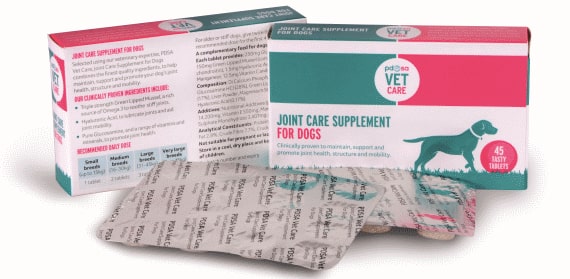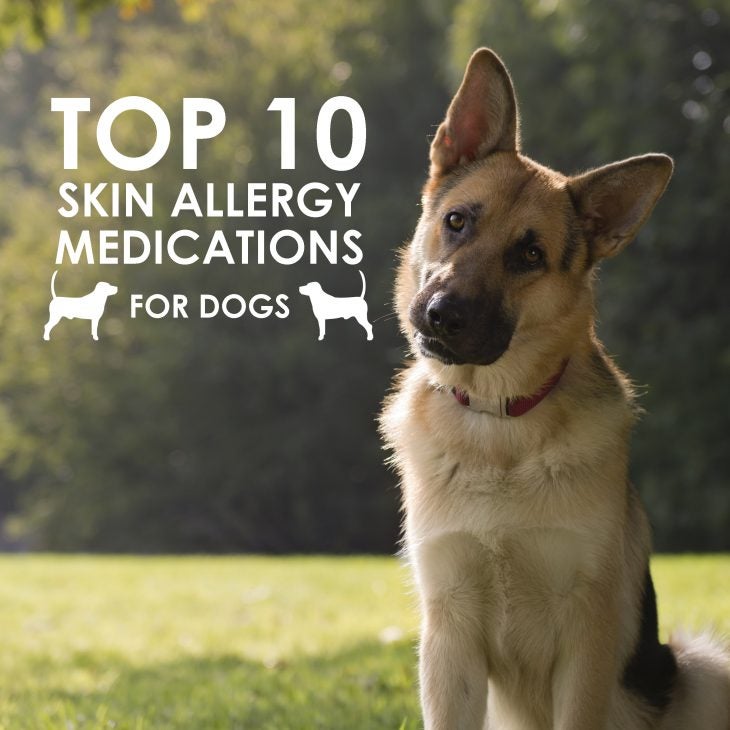Excellent Facts On Deciding On Herbs Good For Dogs
Wiki Article
Probiotics Are A Great Option For Pets And Cats Suffering From Allergies.
Probiotics may play an important part in managing and alleviating skin allergies in both cats and dogs. These bacteria are beneficial and can help maintain a good microbiome of the gut. This in turn helps the immune system and skin. Let's take a look at the ways that probiotics can help lower the risk of allergies in pets.
Immune System Regulation
Immune Balance:
Function: Probiotics regulate the immune system through the development of good bacteria in the gut, and the inhibition of harmful bacteria.
Benefits: A healthy immune system can help reduce hypersensitivity reactions that cause skin allergies. This helps to minimize the severity and frequentity of allergic reactions.
Inflammation Reduction
Anti-inflammatory Effects:
Function: Certain strains of Probiotics can modulate inflammation and release antiinflammatory chemicals.
Benefits: Probiotics help reduce the inflammation in the system. This can help to ease itching and inflammation caused by skin allergies.
Gut-Skin Axis
Improvement of Gut Health:
Function The gut-skin connection refers to the connection between skin and gut health. Probiotics can improve the gut barrier's health and overall digestion.
Benefits: Healthy guts prevent the leeching of toxins into bloodstreams which can cause skin reactions. This may lead to a reduction in skin allergy symptoms.
Strengthening Skin Barrier
Enhanced Skin Barrier Function
Function: Probiotics possess the capability of influencing the production and distribution of ceramides, as well in other lipids that are essential to maintaining an effective skin barrier.
Benefits: A thick skin barrier protects against environmental allergens and minimizes allergic reactions as well as skin infections.
Allergy Symptom Management
Treatment of Symptoms:
Function: Probiotics may aid in managing symptoms by modulating the release of histamines as well as other chemical compounds involved in allergic reactions.
Benefits: This item can aid in reducing itching, inflammation, and discomfort that is associated with skin allergies.
Improve the diversity of microbes
Increased Diversity of Microbes:
Function: Probiotics play a crucial role in expanding the diversity of gut microbiome. This is essential for a healthy immune system.
Benefits by preventing the overgrowth of harmful bacteria, which may create allergies, a diverse microbiome can support your overall health.
Certain Probiotic strains
Lactobacillus and Bifidobacterium The two are both commonly used probiotic strains which have been found to be efficient in reducing allergies to the skin in pets.
Lactobacillus Rhanosus GG is acknowledged for improving the health of your gut and for reducing symptoms of allergies.
Bifidobacterium animalis: It aids in reducing inflammation and enhancing the immune response.
Use and considerations
Dosage dosage, administration, and dosage: The right dosage depends on the pet's weight, height, and health requirements. You should always adhere to the advice of your vet or the directions for the product.
Formulations Probiotics for pets can be found in various forms, including capsules, powders and chews. Selecting a top-quality pet-specific product is vital for security and efficacy.
Monitoring and side consequences: While probiotics typically don't cause harm, it's important to monitor your pet for any adverse reactions, such as stomach upset. It is possible to reduce the risk of adverse effects by beginning with an initial dose and gradually increasing the dosage.
Conclusion
Probiotics help dogs and cat owners control their allergies to skin by regulating immune function by reducing irritation, enhancing the skin barrier and enhancing gut health. Regular usage can lead to the reduction of symptoms associated with allergies. It also promotes healthier skin for pets and an improved health and quality of life for them. Have a look at the top pet wellbeing blog for site info including pet nutrition supplements, pet skin and coat care, pet supplements for pets with fear of death, pet supplements for pets with fear of strangers, pet kidney supplements, pet omega-3 supplements, pet supplements for pets with special needs, pet health supplements and more.

What Can Coconut Oil Do To Help In The Treatment Of Cat And Dog Allergies To The Skin?
Coconut oil can be an effective natural remedy for animals and cats who suffer from allergies to the skin. It is due to its anti-inflammatory, healing and antimicrobial qualities. Here's how coconut oil could benefit pets with skin allergies:
Moisturizing Properties
Hydration of the skin
Coconut oil is moisturizing for the skin.
Benefits: It relieves from itching, and also helps improve the skin barrier. This is particularly helpful for animals suffering from allergic dermatitis that frequently causes dry and itchy patches on the skin.
Anti-inflammatory Effects
Inflammation Reduction:
Coconut oil contains a substance called lauric Acid, which is an anti-inflammatory.
Applying coconut oil to inflamed skin can reduce the redness, swelling and irritation. It can also provide relief for pets that are suffering from allergies.
Antimicrobial Activity
Fighting Infections
Function: Caprylic acid and Lauric acid are antimicrobial acids that fight viruses and bacteria.
Coconut oil can help for treating skin irritations secondary to caused by irritation or scratching due to allergies. It can aid in maintaining skin health, and prevent future complications.
Soothing and Healing
Promoting Healing
Coconut oil is a natural healer for the skin.
Benefits: It can soothe and heal minor wounds as well as hot spots, abrasions, and abrasions caused by excessive scratching. This may speed up the healing process for skin damaged due to allergies.
Barrier Protection
Enhancing Skin Barrier:
Coconut oil works by strengthening the barrier to skin.
Benefits: A stronger skin barrier can protect you from allergens and environmental irritating substances. It will also reduce the chances of skin infections and allergic reactions.
Dietary Supplements
Internal Benefits
Coconut oil is a good choice to take orally to supplement the diet.
It helps improve the condition of skin by providing nourishment to the skin by nourishing it from inside. The anti-inflammatory and antimicrobial properties can help reduce systemic inflammation and enhance the pet's immune response and reduce the risk of skin allergies.
Use and considerations
Topical application Use a tiny amount of coconut oil on the areas of your skin that are affected. Apply the coconut oil gently until it is absorbed. This can be done once or twice a day depending on how serious the skin condition is.
Coconut oil, when added to the pet's diet is an oral supplement. The typical dosage is around 1 teaspoon for every 10 pounds body weight, however it's essential to start with a smaller amount and gradually increase it to avoid digestive upset.
Qualitative of Coconut Oil: Use high-quality organic, natural, virgin coconut oil to ensure that it is free of additives and preservatives.
The coconut oil used is usually thought as safe. However, it's important to keep an eye on any reactions, such as diarrhea or vomiting after consumption, and any irritations to the skin when applied to the skin.
We also have a conclusion.
Coconut oil can help manage skin allergies in dogs and cats. Its antimicrobial and healing properties as well as its anti-inflammatory and moisturizing properties, can soothe and protect the skin, lessen itching and inflammation, as well as improve the health of your skin. Regularly applying coconut oil on the skin of pets can to reduce the symptoms of allergic reactions. Have a look at the recommended his explanation for treatment for cushings disease in dogs for website info including pet ashwagandha supplements, pet supplements for pets with eye problems, pet plant protein supplements, pet supplements for pets with skin infections, pet ashwagandha supplements, pet supplements for pets with aggression problems, pet supplements for pets with muscle atrophy, pet muscle supplements and more.

How Can Cat And Dog Affected By Yeast Infections? Probiotics?
Probiotics are beneficial for managing yeast infections in dogs and cats by promoting an appropriate balance of microorganisms inside the gut as well as on the skin. Probiotics can assist with yeast infections:
Restorative of Microbiological Balance
Balancing Gut Flora:
Function: Beneficial bacteria help keep the balance of microorganisms inside the digestive tract.
Benefits: A healthy gut microbiome supports overall immune function and helps stop the overgrowth of yeast (such as Candida) that could cause infections. This assists in managing yeast-related illnesses in the body.
Competition with pathogens
The Competition of Harmful Microorganisms with Harmful Microorganisms
Function: Probiotics fight against pathogenic (disease that cause) microorganisms, including yeast, for resources and skin space.
Benefits. By outnumbering or out-competing other pathogens such as yeast, probiotics can limit their capacity to cause infections and help maintain a healthy microbiome.
Modulation of the Immune response
Enhancing Immune Function:
Function: Probiotics help support the immune system by influencing the creation of substances that regulate immune function.
Benefits: An improved immune system will aid the body in fighting off yeast infections and also reduce the frequency of them.
Production of Antimicrobial Substances
Antimicrobial Factors are made by:
Function: Certain probiotic strains have substances (such bacteriocins), which are antimicrobial against yeasts as well as other pathogens.
Benefits: These factors are antimicrobial and may hinder the growth of fungi, thus helping in tackling yeast infections.
Reduce Inflammation
Anti-inflammatory Effects:
Function: Studies have demonstrated that probiotics may reduce inflammation that is caused by yeast infections.
Benefits In reducing inflammation probiotics can alleviate symptoms like redness, itching, and discomfort caused by yeast infections.
Support for Skin Health
Maintaining Skin Barrier Function:
Function: Probiotics ensure the integrity and health of the skin barrier.
A well-functioning skin barrier can reduce the risk of yeast infection. This is due to it preventing yeast and other pathogens entering and causing an infection.
Use and Considerations
Types of probiotics: Select probiotic supplements with strains proven to improve the health of your skin and prevent yeast infections.
Probiotics can be found in many forms, including capsules, chews, powders, or chewable tablets. Topical probiotic formulations may also help with localized skin conditions.
Duration: It is essential to use probiotics over an extended period of time to keep microbial balance in check and prevent recurrences of yeast-related infections.
Consultation With Veterinarians: Consult with your veterinarian prior to starting probiotic supplements for your pet. They will be able recommend the appropriate probiotics, dosages and durations, based on the specific health requirements of your pet.
The Final
Probiotics may be an important adjunct therapy in treating yeast infections among pets and humans. Probiotics can help improve the health of your skin by encouraging the health of your microbiome, enhancing immunity and reducing inflammation. They also help reduce the intensity and frequency of yeast infections. When probiotics are used in conjunction to a comprehensive plan of treatment they can aid in improving the overall health and comfort of pets suffering from yeast infections. Follow the recommended yeast infections in dogs advice for more info including cushings disease alternatives, pet willow bark supplements, pet supplements for pets with fear of mirrors, natural cat supplements, pet supplements for pets with fear of tv and radio, pet supplements for pets with fear of music, dog supplements, pet supplements for pets with allergies and more.
